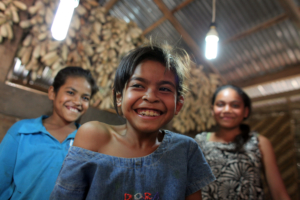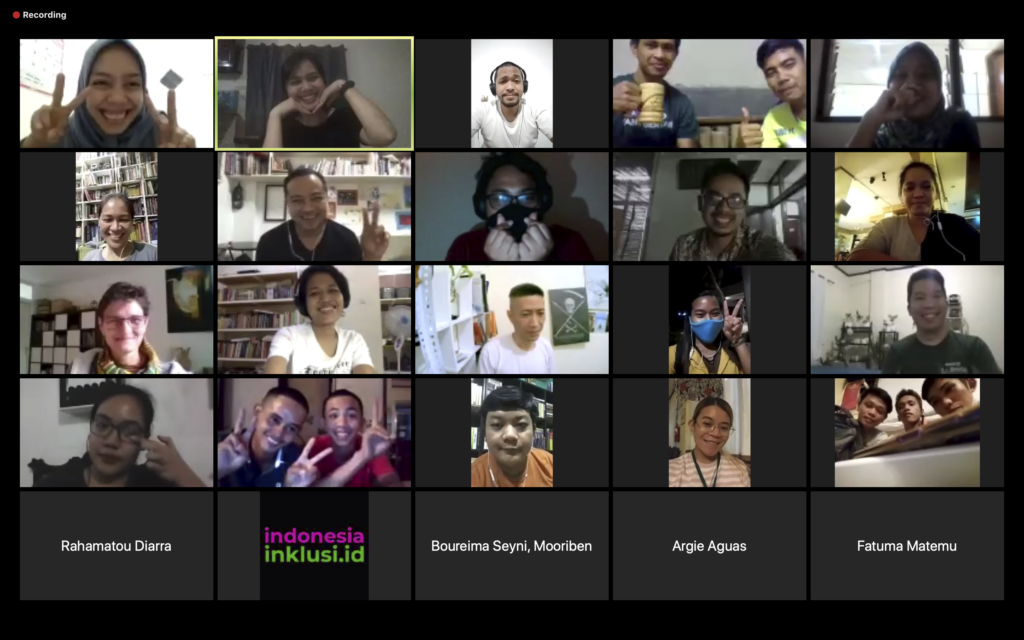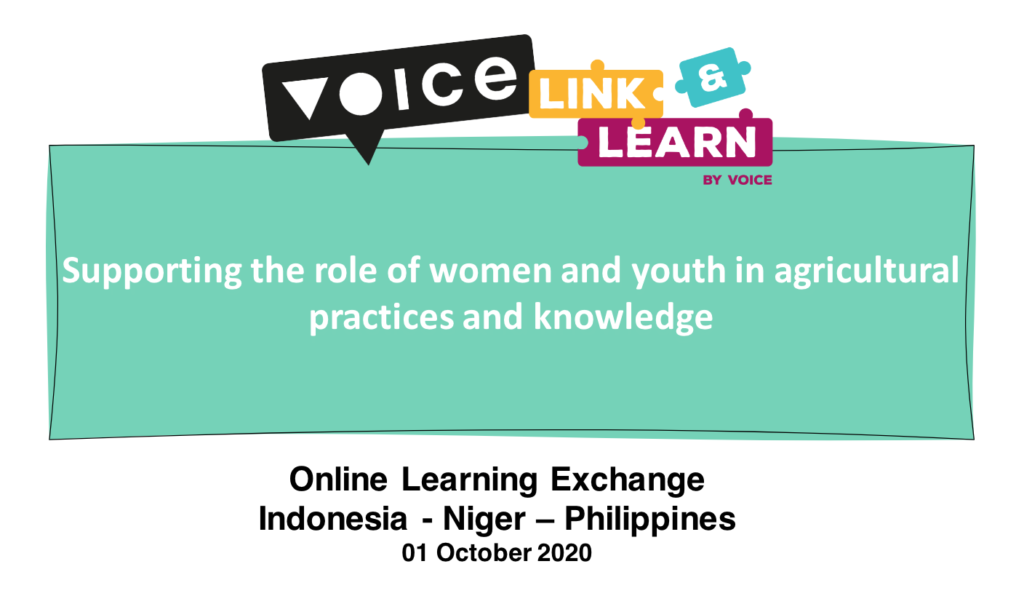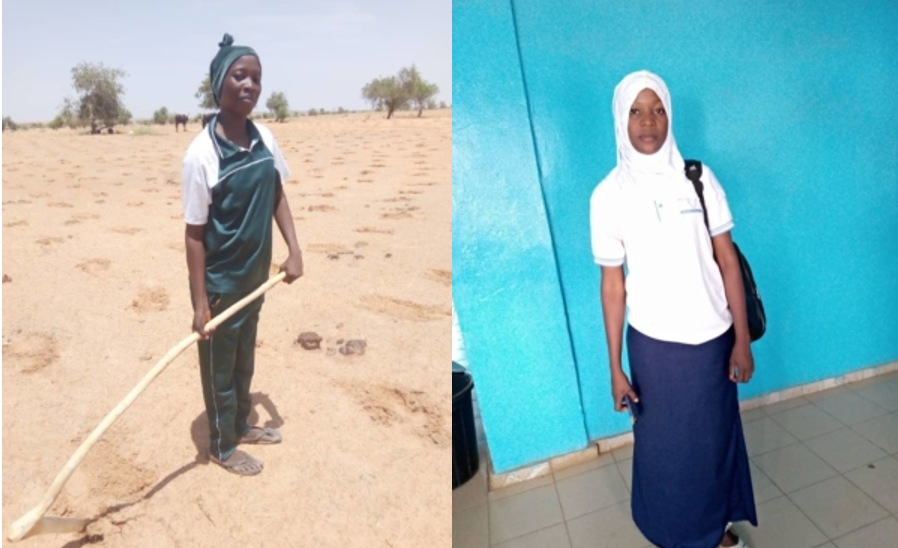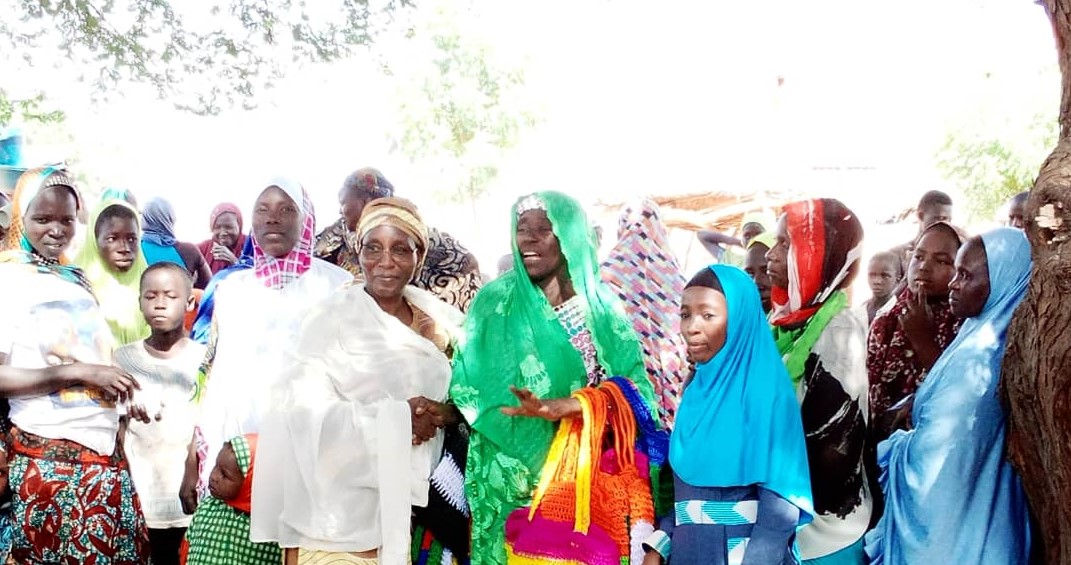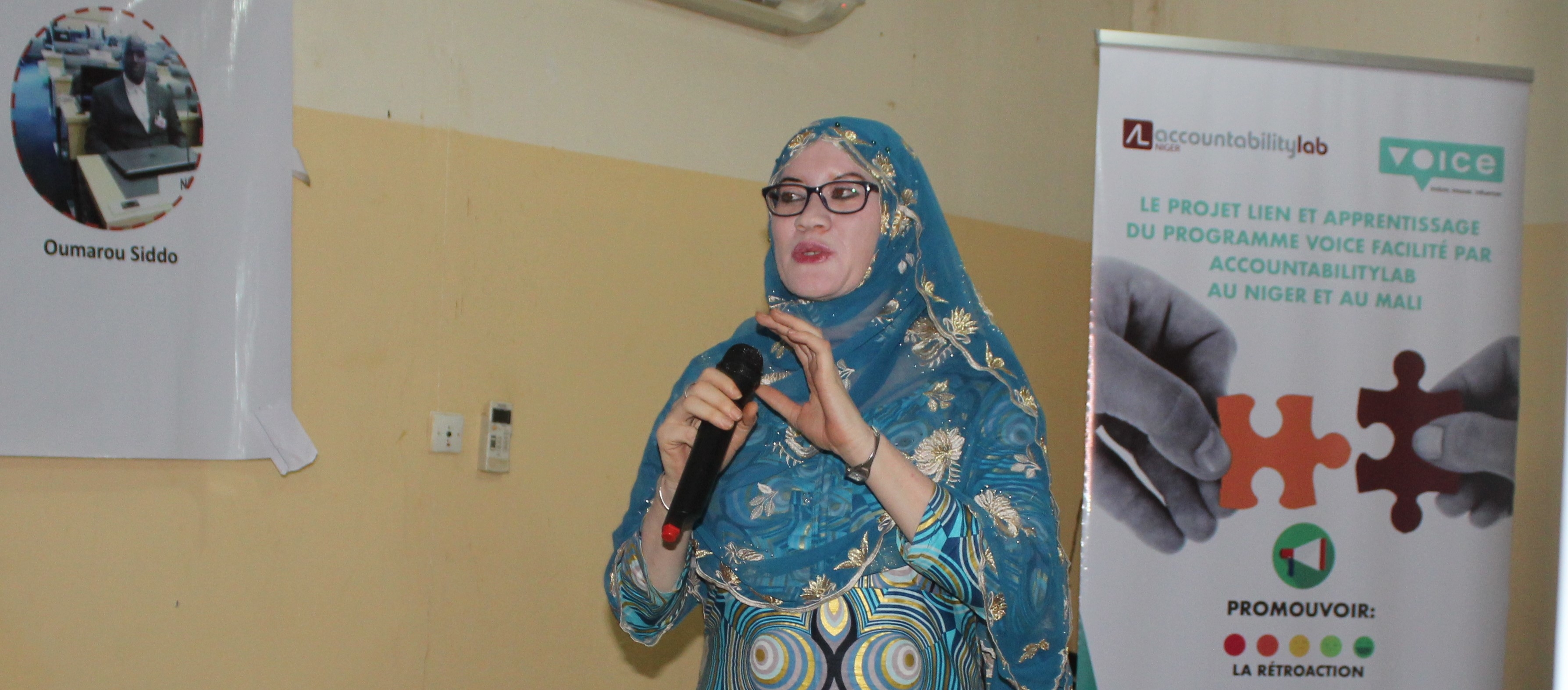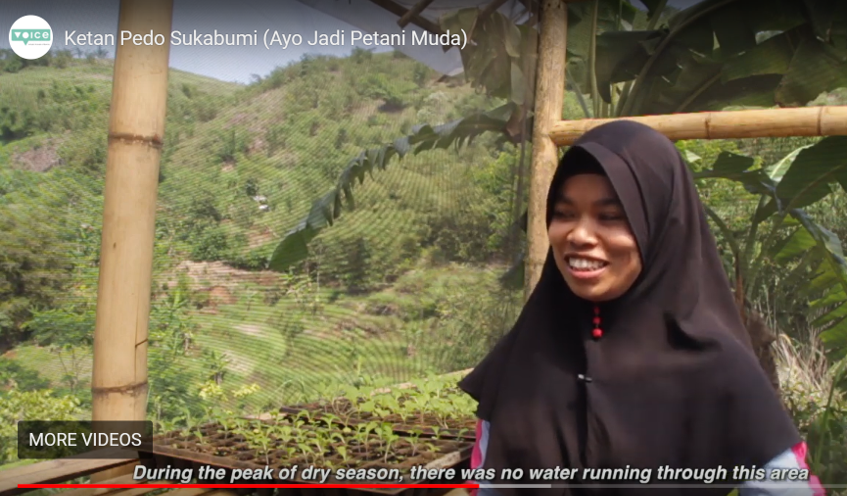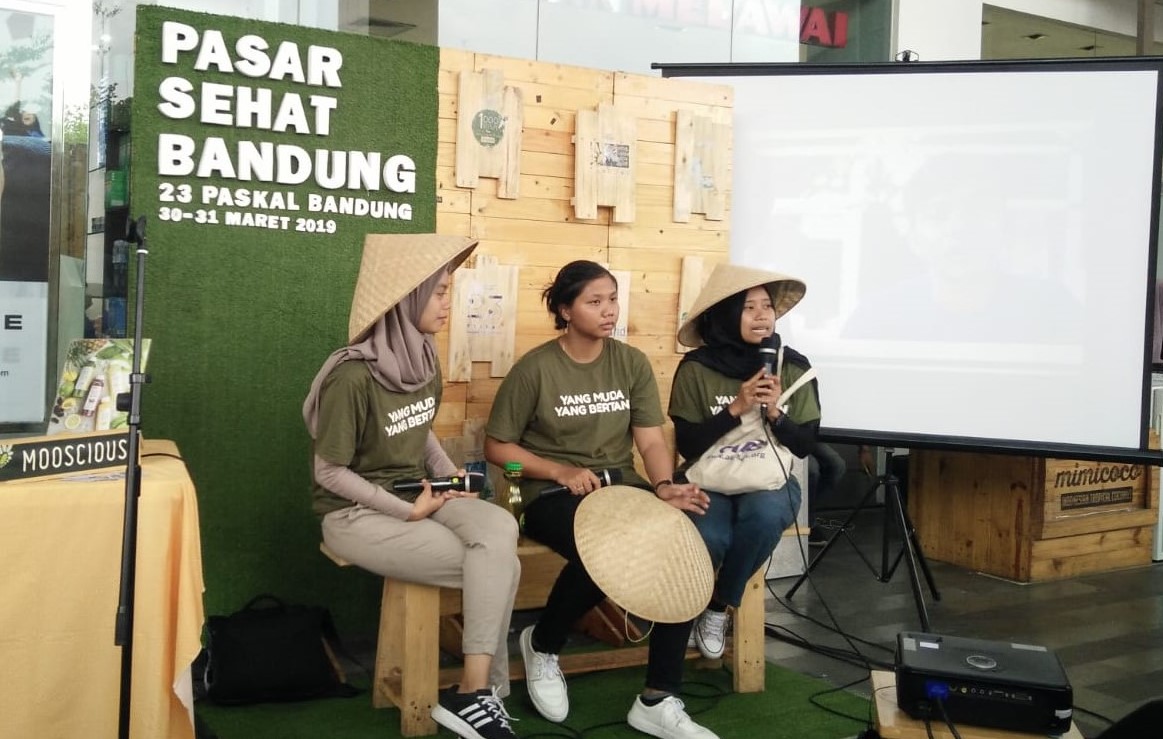From Asia to Africa
Showcasing youth & women in agriculture
By Kayla Lapiz, Linking, Learning and Amplifier Officer Voice Philippines and Aida Toye Project Coordinator Voice in Niger
In October 2020, a learning exchange brewing among three Voice country teams – Indonesia, Philippines, and Niger – finally came to fruition. It started when EngageMedia, a former Linking & Learning Facilitator of Voice Indonesia, presented an interest to organise a cross-country sharing around youth, women and agriculture. Niger picked up on this interest. Philippines later on jumped in the wagon.
Three Innovate & Learn grantees were invited to take part: Niger-based Mooriben, a federation of agricultural unions whom, through a Voice project, created a TV game show as a platform to popularise good farming practices. From Indonesia, AKATIGA, an organisation that focuses on research, policy influencing, and monitoring and evaluation, worked on a project encouraging the youth to harness skills in farming and to see it as a viable livelihood. Lastly was KAISAHAN—a non-government organisation in Philippines that promotes sustainable and humane society and empowers marginalised groups, such as farmers and farm workers to undertake their own development. KAISAHAN’s Voice project aimed to bridge that intergenerational gap in farming. EngageMedia facilitated the exchange among the different organisations, which led to an extraordinary adventure.
It was an interesting journey of co-creation, admittedly taking a longer time as expected given the hectic schedule each organisation already had and the time differences among the countries. Additionally, the language barrier was an elephant task by itself! We had to translate from Bahasa to English, from English to French, then from French to Djerma… the time, energy and resources it took! But this did not stop the three organisations and us to take on the challenge and push with it.
Despite some hick-ups and delays, what transpired during the actual event was wonderful. The group decided to conduct a webinar that centers on two learning questions:
- How do we develop or strengthen the intergenerational transfer of knowledge in agricultural processes?
- How do we increase the visibility of women farmers in the agricultural process?
Technical difficulties aside, the webinar went well and served as an exploratory platform for everyone. Presentations were made by each organisation, followed by breakout sessions where the two learning questions were delved into more deeply. After the discussion, it was emphasised that training and capacity-strengthening would be the most effective ways in intergenerational sharing and knowledge transfer. These would allow both groups to have an avenue to dialogue about issues and challenges and to learn from one another—not just about planting and growing food but also about the agricultural value chain and to integrate traditional and new techniques in farming. Participants also thought that training centers or formal training institutions would be helpful to encourage the youth to take up agriculture as their field of specialty or profession. Educational institutions could also promote agriculture by incorporating activities within their curricula, especially as basic farming techniques are important for people to learn. The organisations’ hoped that intergenerational connection can/could be established and that gaps in knowledge for both men and women be closed.
A common observation (and challenge) from all organisations was the low participation of young women in their programmes. Women’s participation in decision-making and organisation in the farming process and movement are important, and making their voices heard is an important step to help them meaningfully participate. This can be started by increasing their awareness and knowledge on agricultural techniques as most of them do not have access to it. This, however, comes with the need to provide opportunities for women to access land. This could then better motivate them to get involved in agricultural processes. They also thought that increasing the young women’s knowledge on the nutritional value of food could help. Lastly, a mentoring system between the older and younger women can be set up to hopefully motivate the younger ones to learn and engage.
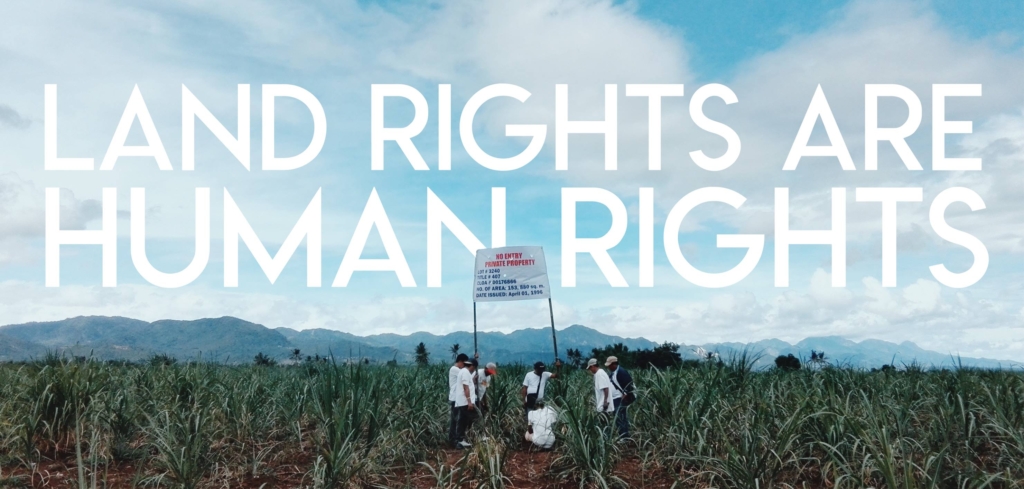
A good practice that organisations shared and proved to be helpful is the use of social media in sharing information and encouraging exchanges. For example, KAISAHAN has a Facebook page and an online chat learning group where they share all about farming. They found it as an effective way to engage the youth as most of them can be found in these media platform. For AKATIGA, they used an online group messaging as a stepping stone for women to speak up. They observed that most young women were at first shy to share their thoughts with a bigger group, and so sharing it first within a smaller circle (via the online group chat) helped them feel more confident to share it more widely. Mooriben emphasised that the youth should be supported in organising themselves into groups. There is also a need to raise awareness among young people at the local level. They also pitched the used of community radio in facilitating intergenerational communication and covering farming activities, especially in areas with weak internet connection.
The younger participants expressed that they like learning and trying new things. It will be helpful for them to know that different materials or mentorship programs exist for them to see the value of farming and to professionally engage in it. Family farming was also shared as a good approach as everyone, young and old, men and women, are involved. Ultimately, all three organisations believe that to keep farming alive and valued, organising is key—and this involves an intergenerational approach and a gender lens that needs to be developed and flourished.

